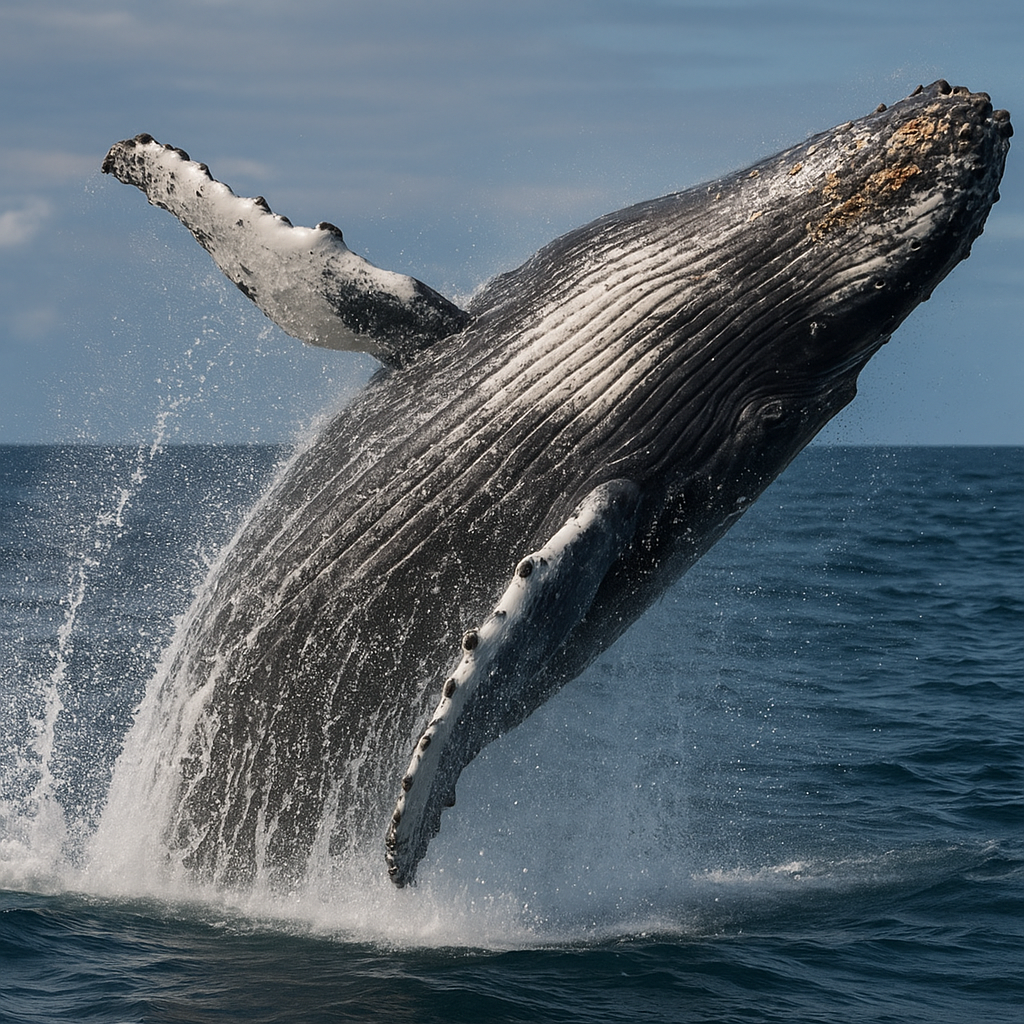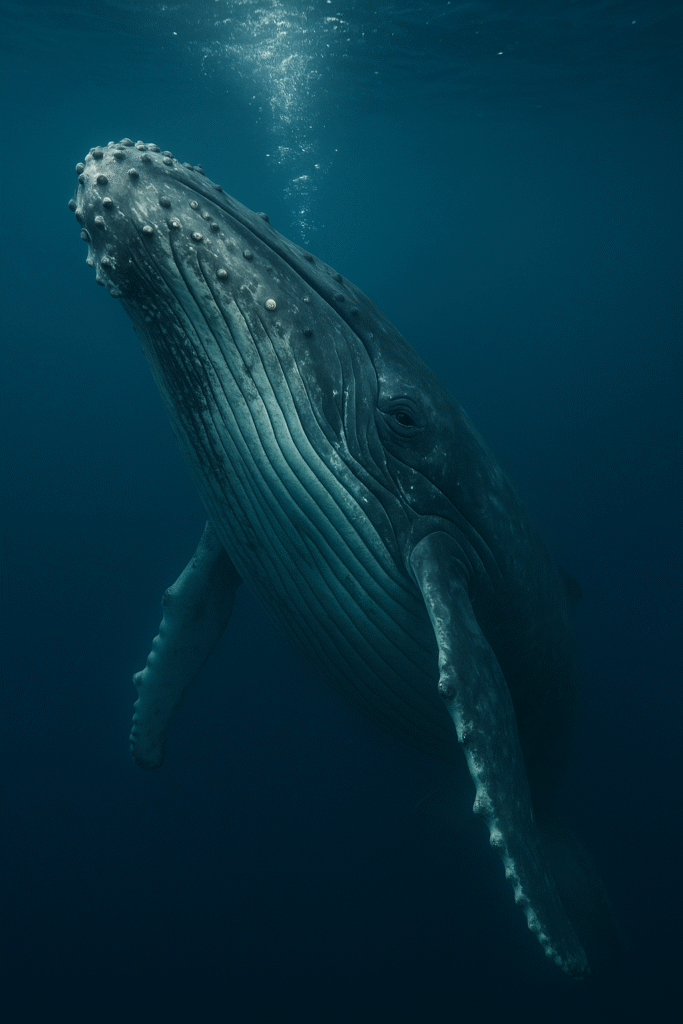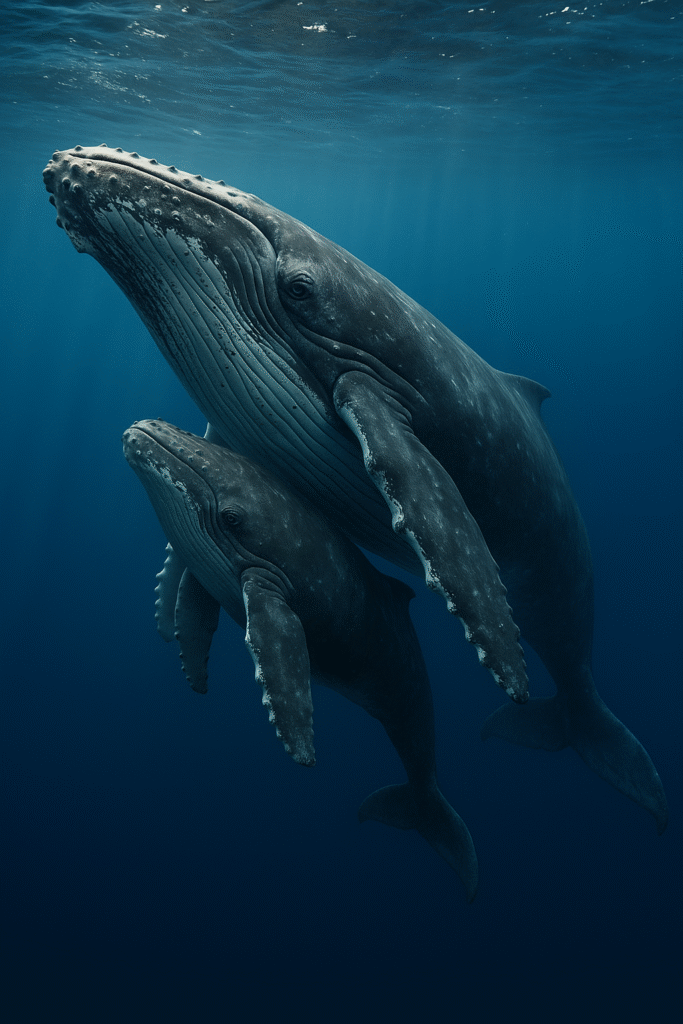Far beneath the shifting skin of the ocean, where light fractures into silver ribbons and the world grows vast and dark, lives a creature that carries both mystery and majesty in its every breath: the humpback whale. These giants, stretching nearly 50 feet and weighing upwards of 40 tons, are not merely residents of the sea but custodians of a story that spans millennia. They are singers, voyagers, and survivors—an embodiment of the ocean’s memory.

The Language of Leviathans
The humpback is most famous for its song—long, intricate sequences of moans, cries, and haunting melodies that can carry across hundreds of miles. Each population has its own song, evolving over time like a living poem passed from one generation to the next. Scientists still puzzle over their purpose: are they courtship displays, maps of migration, or something far older—an echo of communication that transcends the boundaries of our understanding?
What is undeniable is their beauty. Divers who have been lucky enough to hear a whale sing describe it as overwhelming—vibrations felt not only in the ear but in the chest, as if the body itself becomes an instrument resonating with the sea. It is no wonder that in Polynesian cultures, whales were revered as messengers between gods and men, carriers of wisdom whose voices shaped the rhythm of the world.
Journeys Across the Blue
Every year, humpback whales embark on epic migrations—among the longest of any mammal. From feeding grounds in the icy poles to warm tropical waters where they breed and calve, their odysseys span thousands of miles. They navigate with uncanny precision, guided perhaps by the Earth’s magnetic fields or by ancient memory written into their very being.

To witness a humpback breach is to see raw power and grace entwined. A body the weight of dozens of elephants hurls itself skyward, twists, and crashes back into the waves in a thunderclap of foam. Scientists speculate that breaching may be communication, a way of cleansing parasites, or simply play—but for us, it feels like ritual, like dance.
In the Myths of Men
Whales have always loomed large in our imaginations. To some cultures, they were sea monsters, terrors of the deep; to others, they were divine. The Māori of New Zealand told stories of whales guiding navigators across treacherous waters. In Inuit tradition, whales were symbols of abundance and spiritual balance. In modern times, Herman Melville’s Moby-Dick turned the whale into a metaphor for obsession and the unknowable.
Yet the humpback, with its gentle feeding habits and ethereal song, has become a symbol of something more: a reminder that not all giants are predators, and that the ocean’s might can also cradle tenderness.
A Legacy Under Threat
For centuries, whales were hunted mercilessly for oil, meat, and baleen, their populations driven to the edge of collapse. Though commercial whaling has largely ceased, threats remain: entanglement in fishing gear, collisions with ships, the deafening roar of ocean noise pollution that disrupts their songs, and the changing climate that alters their feeding grounds.
Despite these dangers, humpbacks have shown resilience. Many populations, once reduced to a few hundred individuals, have rebounded into the thousands under protection. They remain endangered in parts of the world, but their recovery is a story of hope—a testament to what can be achieved when humanity chooses preservation over exploitation.
The Whale and Us
To stand on a shoreline and watch the sea erupt as a humpback exhales is to feel small in the most humbling way. These whales remind us that we share the Earth with beings whose lives move on scales of space and time that dwarf our own. Their songs are not for us, yet in them, we hear something deeply human: longing, memory, the need to be heard.

The humpback whale is more than a marine giant. It is a guardian of the deep, carrying within its voice a reminder of the ocean’s vastness and vulnerability. As long as their songs echo across the waters, the ocean remains alive with history, with possibility, with hope.


Reply